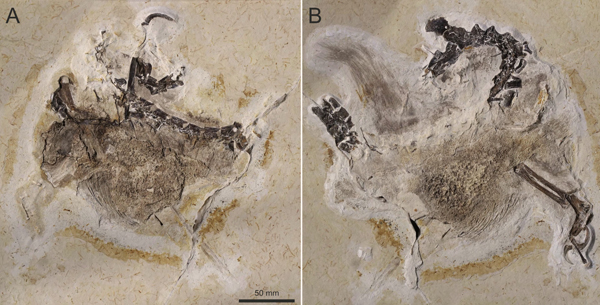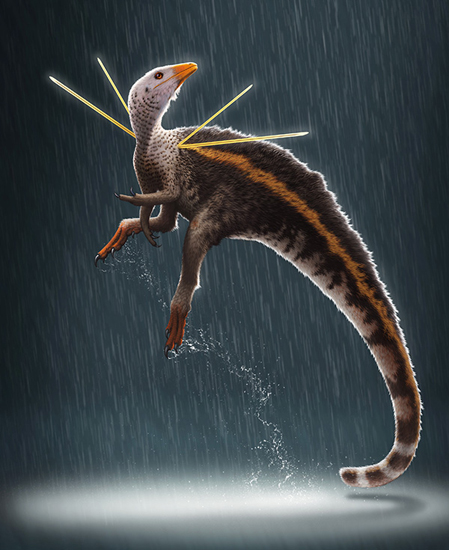Unique Dinosaur Fossil to be Returned to Brazil
A unique, chicken-sized dinosaur fossil excavated from the Lower Cretaceous deposits of the Araripe Basin (Brazil) and currently residing at the State Museum of Natural History Karlsruhe (Baden-Württemberg, Germany) will be returned to Brazil. The specimen (Ubirajara jubatus), lacks properly documented paperwork detailing its acquisition and it may have been obtained without legitimate export permits.

Conflicting Accounts about Fossil Acquisition
Conflicting accounts regarding the fossil’s acquisition emerged prompting the Baden-Württemberg science ministry to launch an internal investigation.
In the scientific paper (now withdrawn) published in the journal “Cretaceous Research” it was stated that the fossil specimen was brought to Germany in 1995. However, this statement was contradicted by researchers at the State Museum of Natural History Karlsruhe claiming the fossil was imported in 2006 by a private company and then acquired by the Museum in 2009.
Unique Dinosaur Fossil
As the documentation providing an audit trail for the obtaining of this specimen has not been supplied nor any evidence given to confirm the fossil material was imported before a German cultural protection law took effect in 2007, it has been decided to return the fossil to its country of origin.
“Parachute Science”
In the days of empire and colonialism, many western powers took fossils from their colonies. These precious artefacts were then put on display. What we see today is another form of colonialism, whereby scientists from the more prosperous countries go to poorer countries to collect fossils. Scientists are “parachuted in” and there is a limited exchange of knowledge with local researchers.
There is a considerable movement to “kick back” against such practices.
To read an article from 2008 about calls from the Government of Tanzania to return fossils in German institutions: Return our Fossils.
Palaeontologists and other researchers are being accused of taking advantage of the natural resources of countries without leaving anything behind in return.
To read Everything Dinosaur’s original blog post about the formal naming and scientific description of this bizarre dinosaur: One Very Flashy New Dinosaur.
Visit Everything Dinosaur’s award-winning website: Everything Dinosaur.


